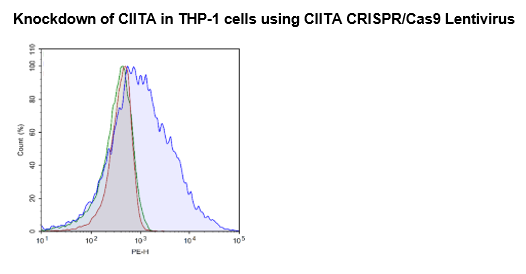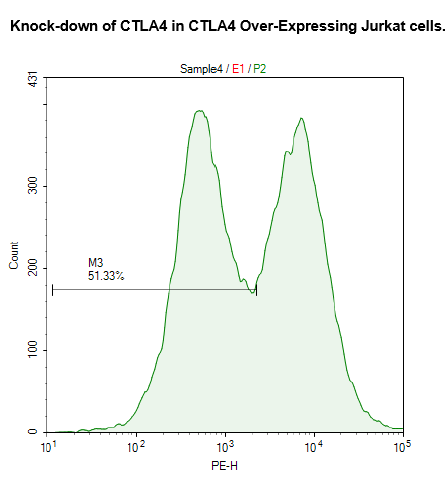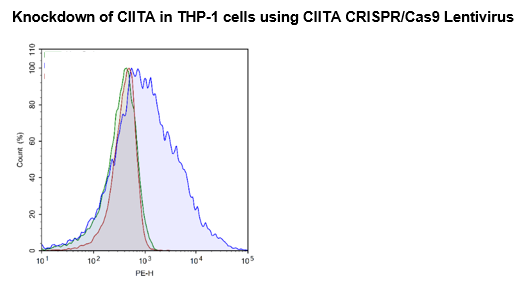
CIITA (Human) CRISPR/Cas9 Lentivirus (Integrating)
78435
Product group Expression
Overview
- SupplierBPS Bioscience
- Product NameCIITA (Human) CRISPR/Cas9 Lentivirus (Integrating)
- Delivery Days Customer7
- CertificationResearch Use Only
- Scientific DescriptionCIITA (class II major histocompatibility complex transactivator) acts as a coactivator for MHC (major histocompatibility complex) class II-specific gene expression and negatively regulates the IL-4 gene promoter during T cell differentiation. IFN-gamma (interferon-gamma) induces CIITA gene expression via JAK1 (Janus kinase 1) and Stat1 (Signal transducer and activator of transcription 1) pathways. The GTP-binding and acidic, proline-serine threonine-rich regions appear to be required for CIITA activity. Defects of CIITA has been implicated as causes of bare lymphocyte syndrome (BLS), which is characterized by the absence of MHC class II transcription and severe immunodeficiencies. The CIITA CRISPR/Cas9 Lentiviruses are replication incompetent, HIV-based, VSV-G pseudotyped lentiviral particles that are ready to infect almost all types of mammalian cells, including primary and non-dividing cells. The particles contain a CRISPR/Cas9 gene driven by an EF1a promoter, along with 5 sgRNA (single guide RNAs) targeting human CIITA driven by a U6 promoter. The integrating lentivirus integrates randomly into the cellular genome to express both Cas9 and the sgRNA. Puromycin selection forces high expression levels of both Cas9 and the sgRNA, and can be used with the integrating lentivirus to quickly and easily achieve high knockdown efficiencies in a cell pool. Efficiencies will depend on the cell type and the gene of interest.
- Storage Instruction-80°C
- UNSPSC41106621





